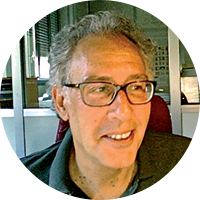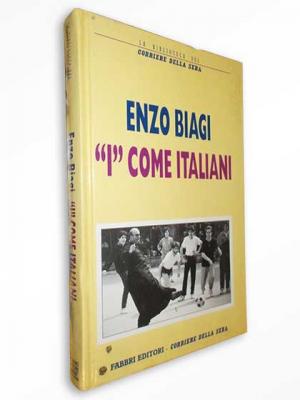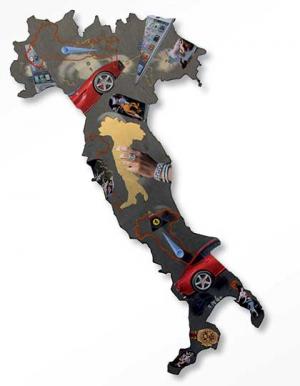Goodbye for now

Editorial by Stefano Lavorini.
Overwhelmed by the urgency of daily events and the winds of war in international politics, we are struggling to find our bearings, forgetful of who we are, of our history.
Perhaps, as always, an attempt to restore a sense of order to the chaos of facts and personalities can help us navigate turbulent waters (seafaring analogies are much in vogue at present, aren’t they?).
Digging out an old book by Enzo Biagi entitled “I” come italiani (I for Italians), I found a few ideas that may help us understand current events.

Nuova Eri, Roma, 1993
RCS Rizzoli Libri SpA, Milano
Aids. We are racing headlong towards the future while carrying with us the fears of the past. Such as those described by Boccaccio...
Art. Nothing new on this front. As my friend Luciano Minguzzi used to say when looking at the works of the Etruscans: “They copied us.”
Atomic bomb. I asked Emilio Segrè whether the researchers working on the atomic bomb in Los Alamos were troubled by moral issues, whether philosophical or humanitarian disagreements arose between them. He told me that if any arguments occurred, it was generally between the researchers’ wives over matters of communal living, such as whether or not they had comfortable lodgings...
Berlinguer Enrico. A friend once said: “If he starts laughing, he almost looks ashamed.”
Bongiorno Mike. The TV game show “Lascia o raddoppia?” (“Double or quits”) offered the thrill of gambling, money and a sense of risk, and that’s what made it so exciting. The only competition Italians are interested in is the Football Pools on Sundays.
Casanova Giacomo. When the lifeguard on the Adriatic beaches approaches a German tourist and invites her to watch the eclipse with him behind the beach huts, she inevitably replies: “You’re a real Casanova, aren’t you?”
Catholics. Eighty out of every hundred Italians believe in God. That would make us the most devout nation in Europe, but only a third of us believe in the possibility of damnation after death.
Eduardo (De Filippo). “I observe, I observe all the time. Theatre leads to life and life to theatre. Through constantly unfolding events, humanity offers up models that never fail to astonish us. New, crazy and unpredictable, they are the source of our characters. My plays are tragedies even when they make you laugh.”
Future. (Foreign) observers laugh at the idea of managerial positions being divided up between political parties, noting that a butcher might end up as the head of a local health authority. And perhaps also the fact that the Inland Revenue will be particularly severe with people who own helicopters, hunting reserves and 18-metre yachts.
Gassman Vittorio. “Given my height in a country of short people, my athletic appearance, the way I walk straight ahead in a seemingly arrogant manner, and the fact that I have a well-established career, I allow myself the luxury of telling the truth at all costs.”

Hunger. The Good Samaritan no longer gets off his horse. There are 5 billion of us, soon 6 billion, and almost 800 million without food: and less grass grows on the earth and there are fewer fish in the sea. The only thing that is spreading is indifference.
Independence. A prayer book belonging to a great-grandmother of mine contained a definition of a priest, of someone devoted to God, which could also apply to journalists: “A lamp that sometimes burns itself to produce light.”
Moro Aldo. His wife Eleonora said: “Outside of his political duties, my husband should be considered a childless widower.”
Women. “Italians really can’t do without a woman: first their mothers, then their wives or girlfriends, and finally the nun who closes their eyes,” said Lina Wertmuller.
Yesterday. The eighties, the most important decade since the war. With so many events and upheavals, it certainly wasn’t boring!
Words that are like the notes of a familiar score but which linger on in our hearts and minds.
Goodbye until next year.




















